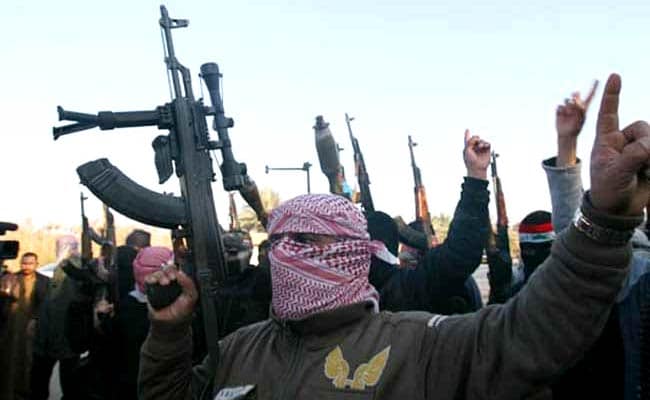
Abdullah Anas is the most senior former jihadist and one of the architects of the Afghan jihad against the Russians.
In a rare interview, Mr Anas told ‘The Sunday Times’ that ISIS was exploiting conflict to advance its own agenda, rather than helping oppressed Syrians.
“This jihad is not legitimate,” Mr Anas said.
He denounced the group’s beheadings and mass rape as “completely against Islam” and said the Quran called for prisoners to be treated with the same compassion as orphans and the poor.
He urged young British Muslims not to fall for ISIS slick propaganda on social media, adding: “You are not helping (your Syrian brothers).”
At least 700 British Muslims, including girls as young as 15, are believed to have travelled to Syria and Iraq to join ISIS and other jihadist groups such as Jabhat al-Nusra, an affiliate of al-Qaeda.
As many as 30,000 foreign fighters have headed to the Middle East, including up to 5,000 from Europe.
The influx of foreign recruits has echoes of the Muslim fighters who flocked to Afghanistan in the 1980s to help defeat the occupying Soviet army.
Mr Anas, 57, an Algerian who lives in Britain, was one of the first to arrive.
He was drawn to the region after meeting Sheikh Abdullah Azzam, a Palestinian cleric widely regarded as the ‘Father of Jihad’ and Osama’s spiritual mentor.
In 1984, Mr Anas and Mr Azzam founded the Services Bureau, an office in Peshawar, near the Afghanistan-Pakistan border which recruited thousands of foreign fighters.
Osama joined the office in 1985 and became a key fundraiser for the Afghan cause.
Mr Anas said the 4,000 foreign recruits who travelled to the area were involved in a legitimate jihad, or holy war, against a foreign aggressor.
“But what ISIS and al-Qaeda are doing (in Syria), they are bringing their own agenda,” he said.
Mr Anas said the main priority of such groups was to create an Islamic state, or caliphate, rather than to help Syrians oppressed by the regime of President Bashar al-Assad.
Mr Anas, who married Mr Azzam’s daughter, sought asylum in the UK in 1996.
He rejects al-Qaeda, which was established in 1988, but has mixed memories of Osama: “I am torn between two Osamas.
The one in my heart who I remember (from the Afghan jihad) as a very high-mannered and polite man; and the one in my brain, the leader of al-Qaeda, responsible for bloodshed everywhere – that man is not someone I can love.”






